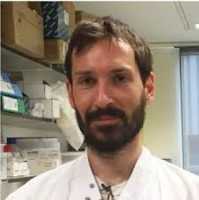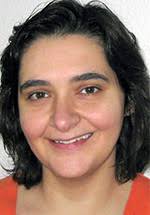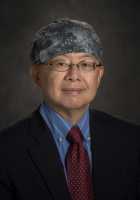MedicalResearch.com Interview with:
Lajos Pusztai, M.D, D.Phil.
Professor of Medicine
Director of Breast Cancer Translational Research
Co-Director of the Yale Cancer Center Genetics, Genomics and Epigenetics Program
Yale School of Medicine
New Haven, CT 06511
MedicalResearch.com: What is the background for this study?
Response: Overall, about 85% of newly diagnosed stage I-III breast cancer patients will not die of their disease, and this roughly equates to an 85% cure rate. Of course cure rates are higher for stage I cancers and lower for stage III cancers. An 85% overall cure rate is good but not good enough, we continuously try to develop new therapies hoping to push these rates to 90%...,95%...etc. However, it is not possible to cure a patient twice over. For example, if surgery plus endocrine therapy cures all patients, the addition of chemotherapy cannot improve on it no matter how effective it is. If surgery plus endocrine therapy cures 95%, adding the perfect chemo to this treatment can only bring about a 5% improvement, and very good chemo that would push cure from 95% to 97%, would require a very large trial including many thousands of patients.
This is an increasingly common scenario in modern breast cancer adjuvant trials (where the goal is to improve survival and cure); the control arm that receives the current standard of care invariably does better than expected and the experimental arm only improves outcome by 1-3% that does not reach statistical significance. The painful conclusion from these trials is that we do not know if the new drug actually works or not because there were not enough events to demonstrate an effect.
Of course, a lot of patients in the study were also exposed to a new drug with all of its associated toxicities who could not possibly benefit from it.
(more…)









 Naoto Tada Ueno, M.D., Ph.D., F.A.C.P.
Executive Director, Morgan Welch Inflammatory Breast Cancer Research Program and Clinic
Section Chief, Section of Translational Breast Cancer Research, Department of Breast Medical Oncology
Division of Cancer Medicine
The University of Texas MD Anderson Cancer Center
Houston, TX
MedicalResearch.com: What is the background for this study? What are the main findings?
Response: The best outcome of inflammatory breast cancer (IBC) is dependent on achieving a pathological completed response after neoadjuvant chemotherapy for primary inflammatory breast cancer, which is the most aggressive type of breast cancer.
We have conducted extensive preclinical work, which showed that EGFR is a potential therapeutic targets of IBC.
Based on this preclinical data, we have conducted a phase II study to determine the pathological complete response rate of panitumumab plus neoadjuvant chemotherapy for HER2 negative primary inflammatory breast cancer.
Naoto Tada Ueno, M.D., Ph.D., F.A.C.P.
Executive Director, Morgan Welch Inflammatory Breast Cancer Research Program and Clinic
Section Chief, Section of Translational Breast Cancer Research, Department of Breast Medical Oncology
Division of Cancer Medicine
The University of Texas MD Anderson Cancer Center
Houston, TX
MedicalResearch.com: What is the background for this study? What are the main findings?
Response: The best outcome of inflammatory breast cancer (IBC) is dependent on achieving a pathological completed response after neoadjuvant chemotherapy for primary inflammatory breast cancer, which is the most aggressive type of breast cancer.
We have conducted extensive preclinical work, which showed that EGFR is a potential therapeutic targets of IBC.
Based on this preclinical data, we have conducted a phase II study to determine the pathological complete response rate of panitumumab plus neoadjuvant chemotherapy for HER2 negative primary inflammatory breast cancer. 



